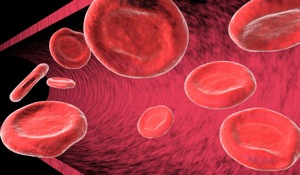
If you have iron-deficiency anemia, it will be difficult to manage your Hashimoto’s hypothyroidism. Because it robs the cells of oxygen necessary for basic functions, anemia is a deal breaker when it comes to improving your health. Knowing how to identify and address anemia are crucial first steps to managing Hashimoto’s hypothyroidism.
What is iron-deficiency anemia
Although there are many forms of anemia, iron-deficiency is the leading cause of anemia in the United States and the most common nutritional deficiency. The body uses iron to make hemoglobin, a part of blood cells that carries oxygen. When iron is low, the body makes smaller red blood cells and fewer of them. As a result, the body does not get enough oxygen.
Lack of oxygen can increase inflammation and make it more difficult to manage autoimmune conditions such as Hashimoto’s hypothyroidism.
Why oxygen is important when you have Hashimoto’s hypothyroidism
This is a problem because all the body's cells need a constant supply of oxygen to function. All cells have mitochondria, which are like little power plants. The mitochondria produce adenosine triphosphate (ATP), molecules that store and release energy, functioning like rechargeable batteries. This process is necessary to create new tissue, eliminate old tissue, convert food to energy, dispose of waste materials and toxins, and communicate with other cells. Healthy mitochondrial function and ATP production are vital to managing Hashimoto’s hypothyroidism, and they require oxygen to work.
What causes iron-deficiency anemia?
A variety of factors can cause iron-deficiency. They include:
- Not enough iron in the diet. Iron-rich foods include meat, eggs, and leafy green vegetables.
- Chronic blood loss in the body from ulcers, heavy bleeding during menstruation, uterine fibroids, hemorrhoids, cancer, or regular aspirin use.
- Pregnancy. The need for iron grows as the pregnant mother must supply iron for both herself and the growing fetus.
- Inability to absorb iron. Iron-deficiency is common in undiagnosed celiac disease, which damages and inflames the small intestine so that it cannot absorb nutrients. Other food intolerances or poor digestive function can also result in poor absorption of iron. Studies have shown a strong link between Hashimoto’s hypothyroidism and gluten intolerance.
Symptoms of iron-deficiency anemia
The easiest way to determine whether you have iron-deficiency anemia is through a functional blood chemistry panel, which looks at a complete blood count and iron markers.
You can also evaluate your symptoms to determine whether you may be at risk for iron-deficiency anemia. Symptoms include:
- Feeling weak and tiring easily
- Dizziness
- Feeling grumpy or cranky
- Headaches
- Pale skin, nail beds, and gums
- Short of breath
- Trouble concentrating
Addressing iron-deficiency anemia for Hashimoto’s hypothyroidism
One should address the root cause of iron-deficiency anemia to better manage Hashimoto’s hypothyroidism. For instance, a gluten-free diet and repairing gut damage resolves anemia in many people. If you need an iron supplement, it's important to choose one that is well absorbed by the body and will not cause an upset stomach or constipation. Ask my office for advice.
Avoid iron toxicity
There are many different forms of anemia besides iron-deficiency anemia, such as anemia caused by a B12 deficiency, inflammation, or an autoimmune disease (pernicious anemia). Supplementing with iron when you don't need it may increase the risk of excess levels of iron in your body. Although the body needs iron to function, in excess it is toxic.
Ask my office for advice on anemia.





Latest from the Blog
The Dirty Dozen
August 19, 2024The “Dirty Dozen” is a list of fruits and vegetables, compiled by the Environmental Working Group (EWG), that you should always eat organically. These produce items are not only delicious and nutrient-rich but also tend to carry high levels of pesticide residues when grown conventionally. By opting for organic versions, you can significantly reduce your […] Read more
Latest from the Blog
3-Day Detox Plan
Here’s a 3-day detox meal plan tailored to be autoimmune-friendly and compliant with functional medicine principles. This plan emphasizes anti-inflammatory, nutrient-dense foods while avoiding common triggers for autoimmune symptoms. Day 1 Breakfast: Green Smoothie Bowl Ingredients: Spinach, kale, cucumber, green apple, avocado, coconut milk, chia seeds. Why: Spinach and kale are rich in vitamins A, […] Read more